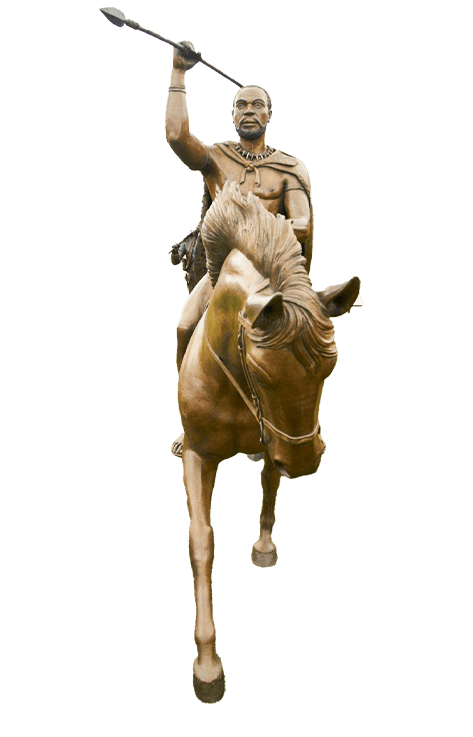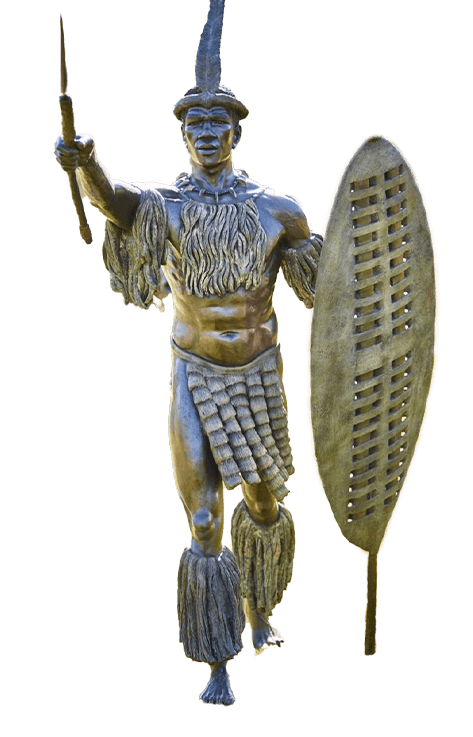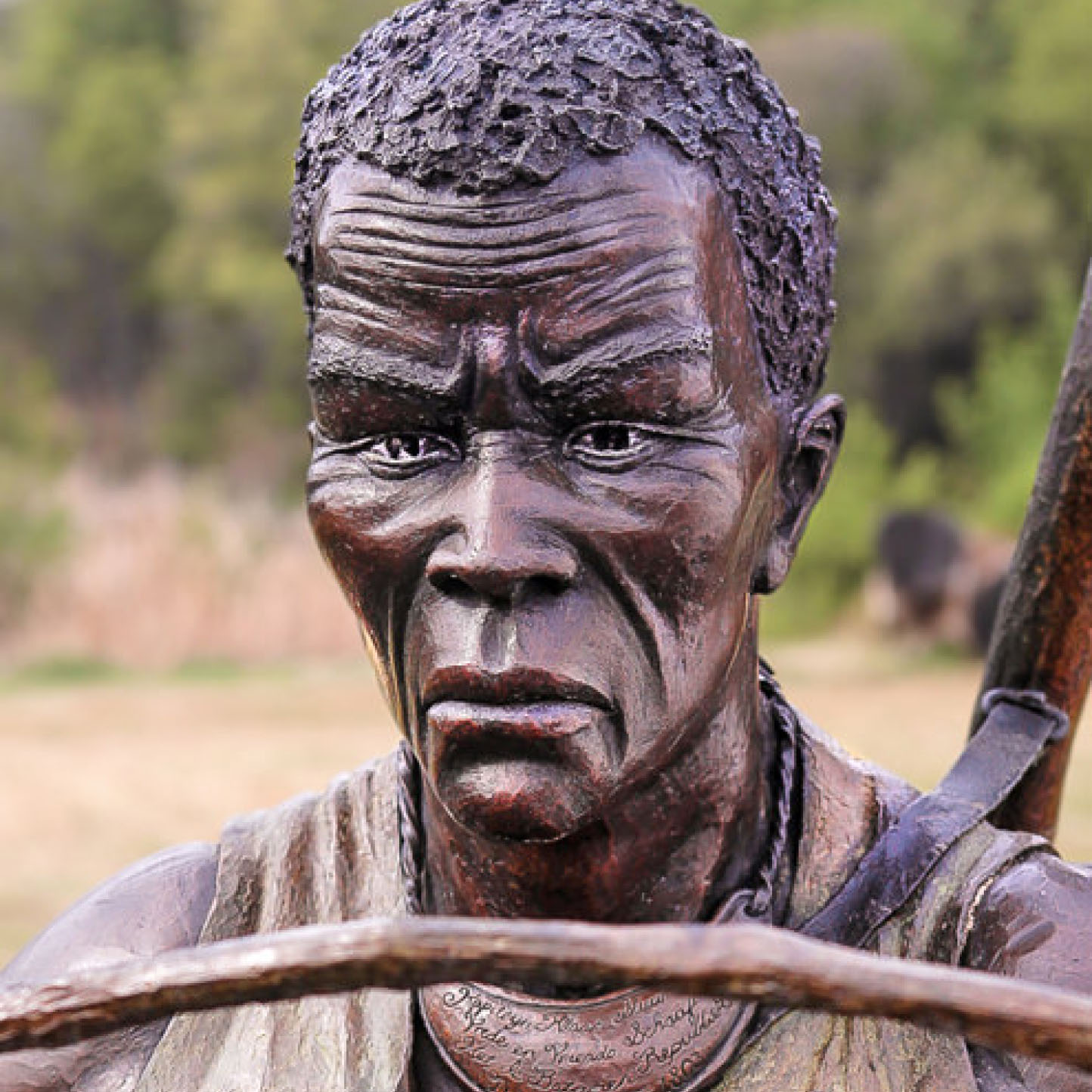
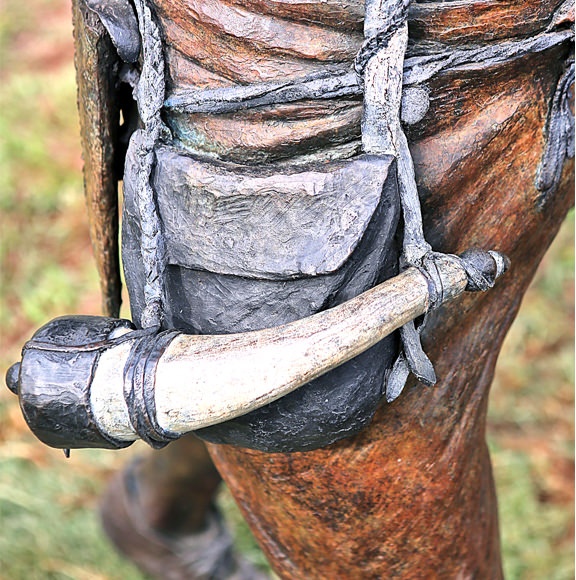
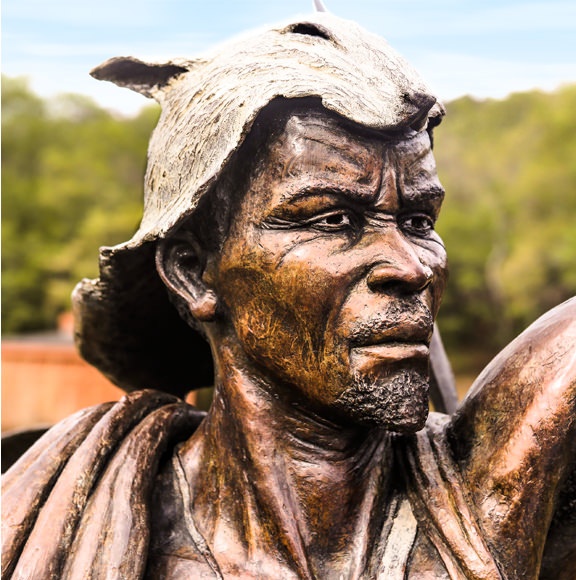
"Restore the country of which our fathers were despoiled by the Dutch and we have nothing more to ask. We have lived very contentedly before these Dutch plunderers molested us, and why should we not do so again if left to ourselves? Has not the Groot Baas (God) given plenty of grass, roots and berries and grasshoppers for our use; and, till the Dutch destroyed them, an abundance of wild animals to hunt? And will they not return and multiply when these destroyers are gone?"
Klaas Stuurman
Chief David Stuurman
1773 - 1830
Hero of the Khoena (Khoi) Resistance
David Stuurman was born on a farm in the Gamtoos valley, close to present-day Nelson Mandela Bay in the Eastern Cape.
Both Stuurman brothers, Klaas and David, are legendary for their resistance to European attempts to remove the Khoena (Khoi) from their land, a battle that began in 1778 when Dutch Governor Van Plettenberg gave their land on loan to a frontier farmer, forcing the Stuurman brothers to work on neighbouring farms.
In his youth, David was so ill-treated by farm owners that missionary Dr Johannes van der Kemp laid a complaint to the governor in protest.
The Khoena (Khoi) no longer had an independent existence. The children were either apprenticed by the time they reached their teens or conscripted into the colonial militia. The aim was to make them controlled wage labourers and subjects of the colonial authority. Between 1795 and 1806, the Khoena (Khoi) found themselves first in conflict with Dutch frontiersmen, then under British rule (1795), followed again by Dutch Batavian rule (1802) before once more being controlled by the British (1806).
In a break from previous British policy, the Batavian governor granted land to Klaas Stuurman, who unfortunately died during a buffalo hunting expedition and never took occupancy.
In 1804, it was David Stuurman who moved onto the land with 10 men and 32 women and children. Stuurman's land became a refuge for runaway Khoena (Khoi) farmworkers, slaves and conscripts though both the British and Dutch had tried all means possible to keep the Khoena (Khoi) for use in work and war, including offering brandy and tobacco to those who volunteered.
By all accounts, Stuurman was a troublemaker and a thorn in the side of both the frontiersmen and the new British authorities in the Cape. In 1809 he was lured off his land, which was then appropriated for other purposes. He was arrested and imprisoned without trial on Robben Island. He made history by being part of the first group ever to escape the island prison and found refuge with amaXhosa, with whom he continued his cause of resistance for almost 10 years.
During the fifth frontier war (1818-1819) he was re-captured and sent once more to Robben Island. Incredibly he escaped again, the only person ever to do so twice. He was soon caught and banished to New South Wales in Australia in 1823, where he died in 1830, never having seen his wife and children again.
His remains still lie abroad.
